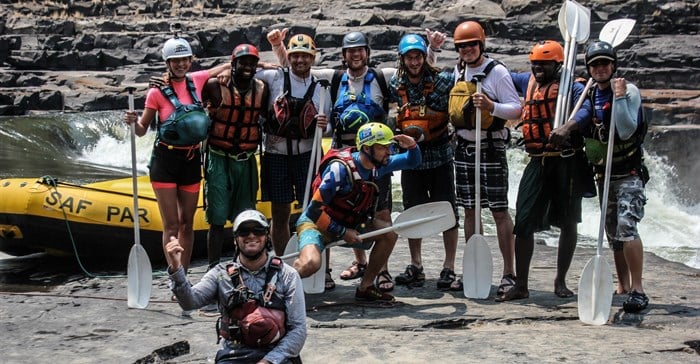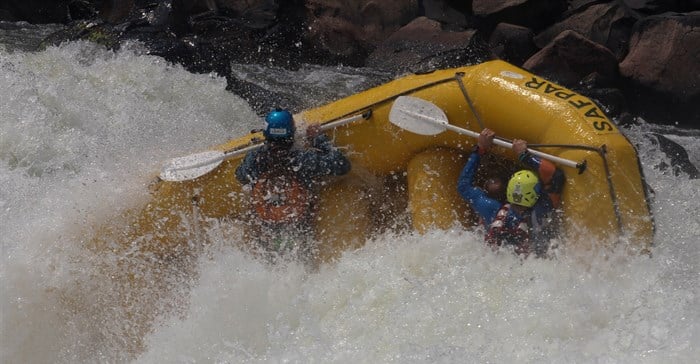A team of highly-skilled white-water rafters from Romania, Poland, Austria and England, took their skills to the next level with a two-week course on the Zambezi River in Zambia.
The rafters upgraded their skills on the Zambezi under the auspices of the Zambezi Class 5 Academy and Safari Par Excellence (SAFPAR) – an adventure operator in Livingstone and on the Zambezi. Two local guides, who were recently trained in-house, also participated in the International Rafting Federation (IRF) course.
“All of our SAFPAR guides are IRF- trained, so this was a unique opportunity for our local lads to upskill and obtain an IRF-qualification,” says Andrew “Sven” Bolton, SAFPAR’s white-water rafting trip leader and canoe guide.
The students were based in Livingstone while honing their capabilities in rafting, kayaking, bodyboarding and swimming the mighty ‘Great River’ (the definition of the Zambezi in the local Tonga dialect). They also received land-based practical training in technical rope work and rescue and outdoor leadership. The trainees were put through their paces by two well-known experts in the river-rafting world – Ru Stevenson and Seb Larcher. The highly-experienced instructor team is certified with the IRF and members of Adventure Logic’s international professional network.
Stevenson, who is from Scotland, works for SAFPAR, mostly between September and November. Larcher is from Austria and a highly sought-after instructor who leads IRF guide schools around the world throughout the year.
A Grade 5 river
The British Canoe Union classifies the Zambezi River below Victoria Falls as a Grade 5 river with extremely difficult, long and violent rapids, steep gradients, big drops and pressure areas. It is regarded as one of the best white-water rivers in the world by the international rafting community.
“Grade 5 rivers are considered as the most difficult to master requiring a full expertise of rafting,” Bolton says. “Grade 6 rivers are so dangerous they are effectively unnavigable. The Zambezi was thus the perfect classroom for these rafters to take their skills to an advanced level. After successfully completing the course, the rafters are now qualified to work on Grade 5 rivers and rapids around the world.”
It is hoped that the course will become a regular feature on the International Rafting Federation (IRF) agenda.










































